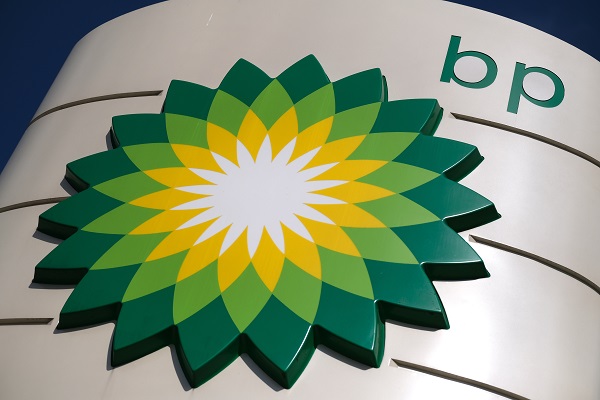BP shares punished for Q3 profits miss
Despite making billions of dollars in the past three months, the number was less than the City expected. ii's head of markets explains investor reaction.
31st October 2023 08:14
by Richard Hunter from interactive investor

BP (LSE:BP.) has ploughed on once more, buoyed by a higher oil price and a strong operating quarterly performance.
Indeed, BP’s own headline – “Performing while transforming” – encapsulates the current state of affairs, as the group continues to make profitable progress while transitioning towards becoming a fully integrated energy company.
- Learn more: SIPP Portfolio Ideas | How SIPPs Work | Transfer a SIPP
The third quarter of its financial year has seen further progress in the likes of resilient hydrocarbons, while an investment of $100 million to Tesla Inc (NASDAQ:TSLA) for ultra-fast chargers in the US is another step towards electric vehicle (EV) charging and convenience in its forecourts.
The preferred reporting metric in the sector, underlying replacement cost profit, came in at $3.3 billion, an improvement from $2.6 billion in the second quarter. However, there is some scope for disappointment here, given expectations of a number of $4.01 billion and as compared to $8.1 billion the year previous. More positively, attributable profit of $4.9 billion compared to a loss of $2.1 billion in the corresponding period last year.
The improved quarterly performance was largely driven by higher refining margins and oil and gas production, although on an underlying basis lower oil and gas realisations and weak gas trading blotted the copybook.
However, with oil currently ahead by 2.5% this year at a level of around $88 per barrel, BP’s “cash balance point” of $40 provides much scope. In terms of outlook, the group is guiding for the oil price to remain around this level, given OPEC+ production restrictions and recovering demand, let alone the potential for spikes given ongoing geopolitical tensions, most notably the current conflict in the Middle East.
Operating cash flow has also seen significant strength, coming in at $8.75 billion, which compares to $8.3 billion the previous year and $6.3 billion the previous quarter. This has enabled a further reduction in net debt to $22.3 billion from $23.7 billion, with BP also unveiling another share buyback programme to the tune of $1.5 billion. Alongside a projected dividend yield of 4.6%, shareholder returns are a high priority for the company and look likely to remain so.
From a broader perspective, some questions remain given the recent departure of the CEO. Compared to the multi-billion dollar fines following the Deepwater Horizon spill, briefly negative oil futures prices and dividend cuts during the pandemic, the resignation is a surprise but perhaps not a major chapter in BP history.
In addition, and with a temporary replacement now confirmed, BP will be hoping for markets to regard the situation as business as usual. There will, however, inevitably be uncertainty until such time as a permanent replacement is found and the company clarifies whether there will be any changes to its current strategy.
- The Week Ahead: HSBC, BP, Shell, BT, Next, Glencore
- Stockwatch: the implications for investors of new Middle East conflict
- Shell shares break records amid threat of wider Middle East war
In addition, the industry as a whole is under increasing pressure to move away from traditional fossil fuels to cleaner replacement energies, and this has tended to weigh on the sector, not least of which is from an environmental, social, and corporate governance (ESG) perspective. The move to renewables is yet to prove consistently profitable or practical, as evidenced by the current travails of the planned wind farms off the coast of New York, and represents the challenge which the move towards cleaner energy brings.
Even so, in the meantime the oil majors remain an important constituent of many standard portfolios given their cash generation and high levels of shareholder returns when circumstances allow.
BP shares have risen of late given the strength of the oil price, and over the last year are up by 11%, which compares to a gain of 3.3% for the wider FTSE100. The cyclical and volatile nature of the industry is well-recognised, but equally something to which the oil companies have become accustomed.
Even though Shell (LSE:SHEL) may marginally be the preferred play of the UK majors, the market consensus for BP as a 'buy' continues to reflect its many investment attractions.
These articles are provided for information purposes only. Occasionally, an opinion about whether to buy or sell a specific investment may be provided by third parties. The content is not intended to be a personal recommendation to buy or sell any financial instrument or product, or to adopt any investment strategy as it is not provided based on an assessment of your investing knowledge and experience, your financial situation or your investment objectives. The value of your investments, and the income derived from them, may go down as well as up. You may not get back all the money that you invest. The investments referred to in this article may not be suitable for all investors, and if in doubt, an investor should seek advice from a qualified investment adviser.
Full performance can be found on the company or index summary page on the interactive investor website. Simply click on the company's or index name highlighted in the article.